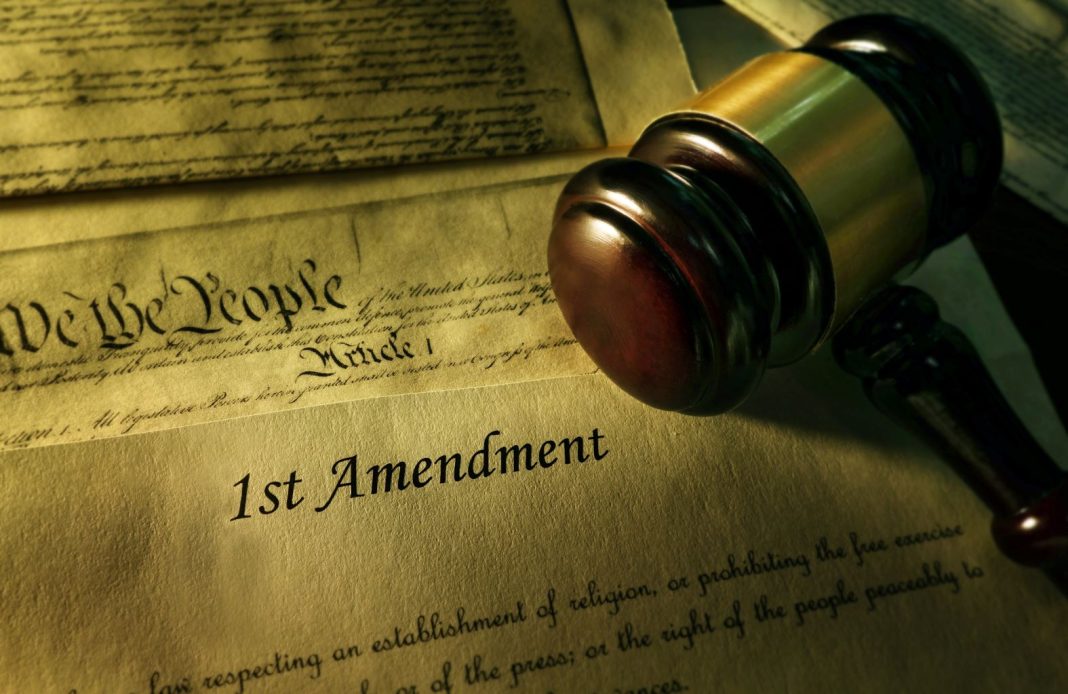[Editor’s Note: Zach Hales and Michelle Weyenberg attributed to this story]
The American Bar Association’s House of Delegates has come to a verdict that preserves the protection of free speech on law school campuses.
The approved new standard is spelled out under Resolution 300 establishes Standard 208 for the nation’s 196 law schools now accredited by the Council of the ABA Section of Legal Education and Admissions to the Bar. It is meant to combat laws and protests that have disrupted free speech and debate on law school campuses.
The ABA previously required those schools only to establish an “announced policy with respect to academic freedom and tenure,” without specifying standards for handling controversial issues or speakers.
“The new standard requires schools to adopt a policy that would allow faculty, students and staff ‘to communicate ideas that may be controversial or unpopular, including through robust debate, demonstrations or protests,’ and would forbid activities that disrupt or impinge on free speech. But it wouldn’t impose specific policy language,” the ABA statement reads.
The proposal from the ABA, outlined via a memorandum from its strategic review committee at the end of August 2023, required law schools to adopt policies intended to formalize free speech protections and policies.
Before the ABA-approved standard regarding free speech protections at law school campuses, the discussion surrounding the ABA’s requirement to establish a “policy” was deemed too broad.
In early 2023, Norman Silber, professor at Maurice A. Deane School of Law at Hofstra University, created a symposium titled “Freedom of Expression at American Law Schools,” which included articles from other scholars such as Len Niehoff, Mary Anne Franks and Eugene Volokh. The collection of papers and responses discussed the ongoing issue of the ambiguity and limits of so-called free speech issues within law school academia.
Siber said the ever-evolving situation led to new problems to untangle, particularly as it relates to faculty members.
“The protection of faculty members from dismissals or nonretention or denial of benefits because of expressions they make in and outside of law school environments, or their political views, or because of the views they express as a result of research, is now treated separately from the establishment of school-wide rights and responsibilities of students, administrators and faculty members,” Silber said.
Silber had also said that the impact of the ABA policy requirement was broad but leaves the onus to develop such policies up to different schools, and as such, could lead to variations in how such free speech policies are developed among varying law schools.
Others had expressed concern in commentary to the ABA that such a broad ranging free speech proposal runs the risk of extending protections to behaviors that could lead to harm for students.
“Please ensure that the phrasing of prohibitions on restriction of offensive commentary does not extend protections to those who sexually harass students or who make unnecessary sexual or racist remarks that could harm student learning or create a hostile learning environment,” wrote Christa Laser, assistant professor of law at Cleveland State University, in comments made on the initial ABA proposal.
Laser also referenced Joshua Wright, a former commissioner of the Federal Trade Commission, and law professor at Antonin Scalia Law School at George Mason University, who resigned in early 2023 following accusations of decades of sexual misconduct, leveraging his influence and position.
Joshua M. Silverstein, professor of Law at the University of Arkansas at Little Rock William H. Bowen School of Law, expressed concern that one of the proposed standards, 301(c), which outlines objectives for the program of legal education, would be reductive to the quality of education received at law schools.
“Teaching mandates limit or eliminate that critical flexibility. In particular, they interfere with numerous balancing decisions professors make in course design. Thus, teaching mandates generally do far more harm than good. That is usually the case with any type of micromanaging of experienced professionals,” Silverstein said.

